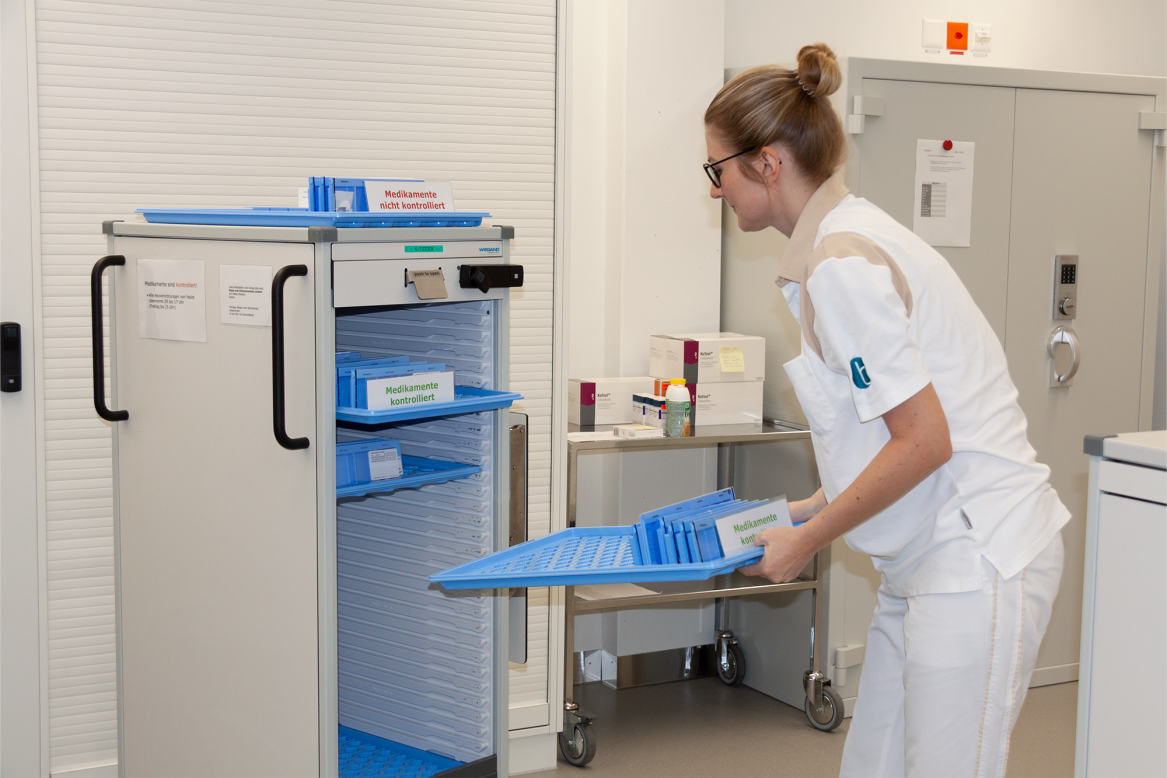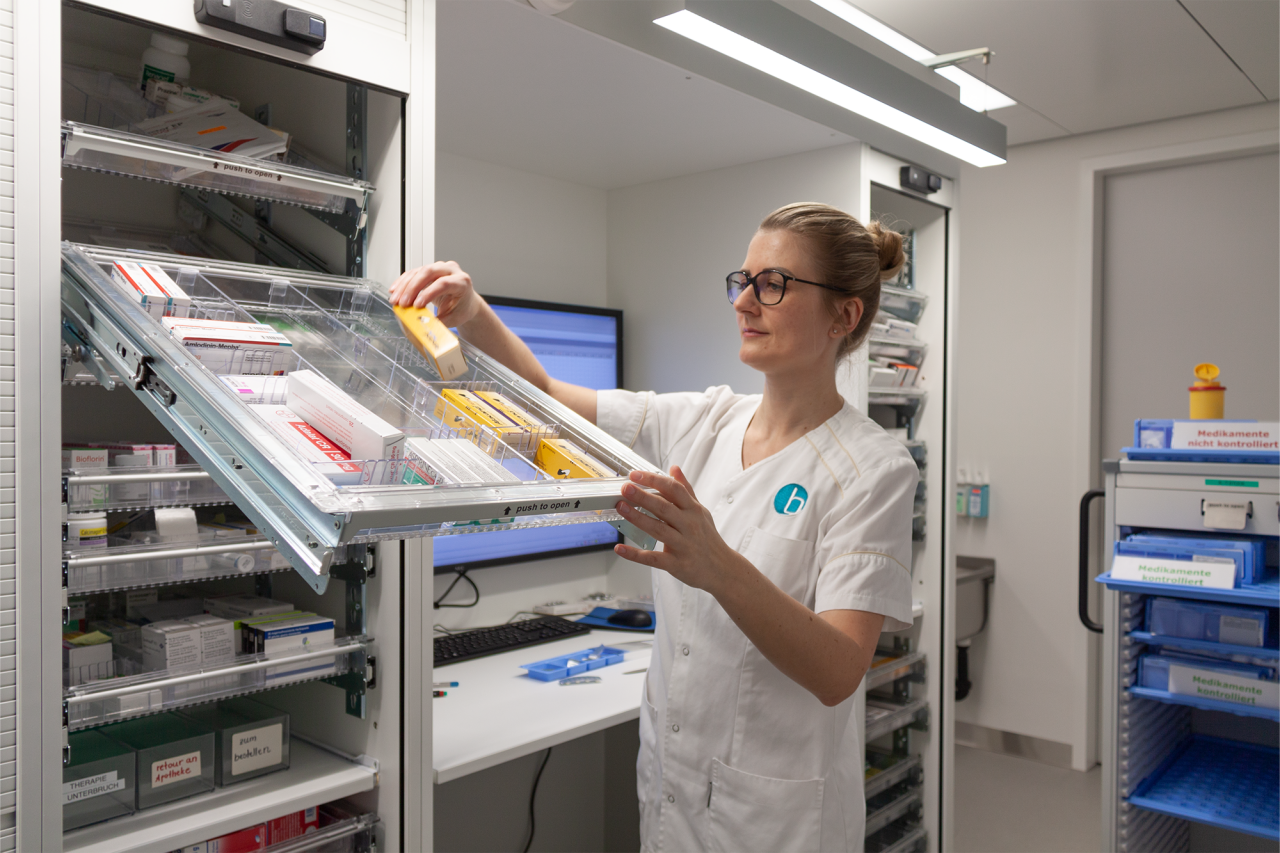Through Centralised Medication Preparation
Hospitals and clinics are noticing a transformation in the way medication is handled: requirements for flexibility and safety in the medication process have significantly increased in recent years. The Bellikon Rehabilitation Clinic in the canton of Aargau is addressing this challenge by implementing centralised medication preparation in its in-house pharmacy and aligning its internal processes accordingly.
Excerpt from Clinicum, Issue 02/19:
The Bellikon Rehabilitation Clinic is Switzerland’s leading specialist clinic for trauma rehabilitation, sports medicine, vocational reintegration and medical assessments. It enjoys a high reputation beyond national borders. As in many clinics, medication in Bellikon was previously prepared and checked by nursing staff on the wards. For Simon Schmid, Vice Chief Nursing Officer and Head of Central Services at the Bellikon Rehabilitation Clinic, this was a long-standing unsatisfactory situation. He became increasingly concerned with the topic of centralized medication preparation and control: “The questions became more urgent: When, where, and by whom should medication be prepared? Which department is responsible for checks? How can we eliminate sources of error?”
Significant Improvement in Patient and Medication Safety
Together with an internal project team, Simon Schmid began to address these questions systematically and to seek economically and medically sound solutions. The team analyzed all aspects, pros and cons of centralized medication preparation and its control. In a specific tender, they defined the goals of the new approach:
- Significant improvement in patient and medication safety
- Involvement of pharmaceutical assistants in the preparation and control process
- Relieving nursing staff of logistics and medication duties
- Establishing infrastructure and reducing sources of error in the process
The clinic management decided to implement the “centralized preparation” project. Initially, one of the two bed wards was to adopt this more efficient process. This allowed for learning and comparison between units with and without centralized preparation. Simon Schmid says: “One of our first steps was setting up a clinic pharmacy outside the care units. This laid the foundation for the centralized preparation and control process.”
Bellikon Rehabilitation Clinic hired pharmaceutical assistants specifically to bring in expertise and establish a more professional approach to medication preparation from the outset.


